Introduction
IOWA CITY, Iowa — Travis Weipert slumped behind his desk, sweat pooling on his brow as he lowered his surgical mask, a nuisance made necessary by the coronavirus pandemic. His brown and white-flecked hair was a gel-matted mess because he hadn’t been to a barbershop for months. He was spent.
Weipert, 39, runs elections for Johnson County, home of the University of Iowa, and he was facing a tsunami of problems as he assessed the work ahead of him for Iowa’s June 2 primary, the dress rehearsal for November’s presidential election. Iowa has become a battleground state, as both the presidential and U.S. Senate races look headed for close results.
Sign up for The Moment newsletter
Our CEO Susan Smith Richardson guides you through conversations and context on race and inequality.
National headlines are inundated with accusations that mail-in voting might be broadly tampered with, that foreign powers will steal the election, that the coronavirus will make voting impossible. But it’s not the federal government that must try to ensure every vote is counted correctly. That responsibility falls to Weipert and thousands of local election officials around the country. “I just want people to vote,” he said. “It should be easier.”
In August, Weipert, the Johnson County auditor, was named in a lawsuit filed by the Trump campaign, seeking to stop his office from filling in voter identification numbers on absentee ballot request forms before they’re sent to voters. Weipert said most voters don’t know their numbers, and filling them in removes a logistical barrier that could prevent some people from requesting mail-in ballots. Since many Iowans probably won’t want to vote in person given the pandemic, Weipert is working to get absentee ballots into the hands of as many registered voters as possible.
A judge ruled that Weipert would have to send out a fresh set of ballots without the identification numbers, settling one of many suits nationally brought by the Trump campaign designed to limit mail-in voting.
In June Weipert was already confronting a glut of problems. The coronavirus had invaded his state, forcing him to find protective gear for his largely older poll workers. More than 20,000 mail-in ballots needed counting, roughly 10 times the normal number for a primary. He knew foreign intelligence agencies were trying to hack into state election systems, as Russia succeeded in doing four years ago. And protests following the killing of George Floyd had set the Johnson County seat, Iowa City, on edge, leaving several downtown buildings with windows broken by protestors.
“The only thing we’re missing right now is a natural disaster to just hit the cycle,” Weipert said, a wry smile on his face. Weipert gave two Center for Public Integrity reporters full access to his facilities and staff before and during the June primary, in an effort to show the public what it takes to run an election. Johnson County is a microcosm of nearly every problem confronting local election officials in every part of the nation — in particular, baseless warnings about election fraud from President Donald Trump and other Republicans. Trump’s stated concern about fraud was debunked by a Washington Post analysis of the 2016 and 2018 elections that found only 372 cases of double voting or voting on behalf of a dead person out of 14.6 million votes.
“There just isn’t fraud,” Weipert said. “The public doesn’t believe that. There’s always the boogeyman in the corner, and it’s just kind of hard…” he paused, the Iowa nice in him hesitating before he referred to Trump’s claims that mail-in voting would rig the election — claims refuted by a White House task force in 2018 that was commissioned by Trump himself.
Democrats in Congress have pushed for $3.6 billion in additional funding in a coronavirus relief bill to help defray extra election costs, covering everything from increased mail-in voting to protective equipment for poll workers. But the Republicans have pushed back, and Trump has said he won’t sign a bill that provides extra funds for voting.
Posturing in Washington aside, it will fall on local officials like Weipert to make sure that elections are carried out securely amid a once-in-a-generation confluence of barriers to voting.
“This, by far, is as complicated and challenging as anything I know of,” Charles Stewart III, a political science professor at the Massachusetts Institute of Technology who helps run the Stanford-MIT Healthy Elections Project.
Mail-in ballots
Two dozen poll workers sat at clusters of L-shaped tables, a registered Republican and Democrat inspecting every mail-in ballot. Each of the mostly middle-aged election officials had a facemask or face shield (and sometimes both) to protect themselves from coronavirus particles as they pulled ballots from folders meant to preserve the secrecy of each voter’s decision.
During a normal primary election for Johnson County, these workers would be unpacking about 2,000 ballots before stacking them to be fed into a counting machine that looks like an oversized copier. By law, they have to wait until the day of the primary before they are allowed to start the count.
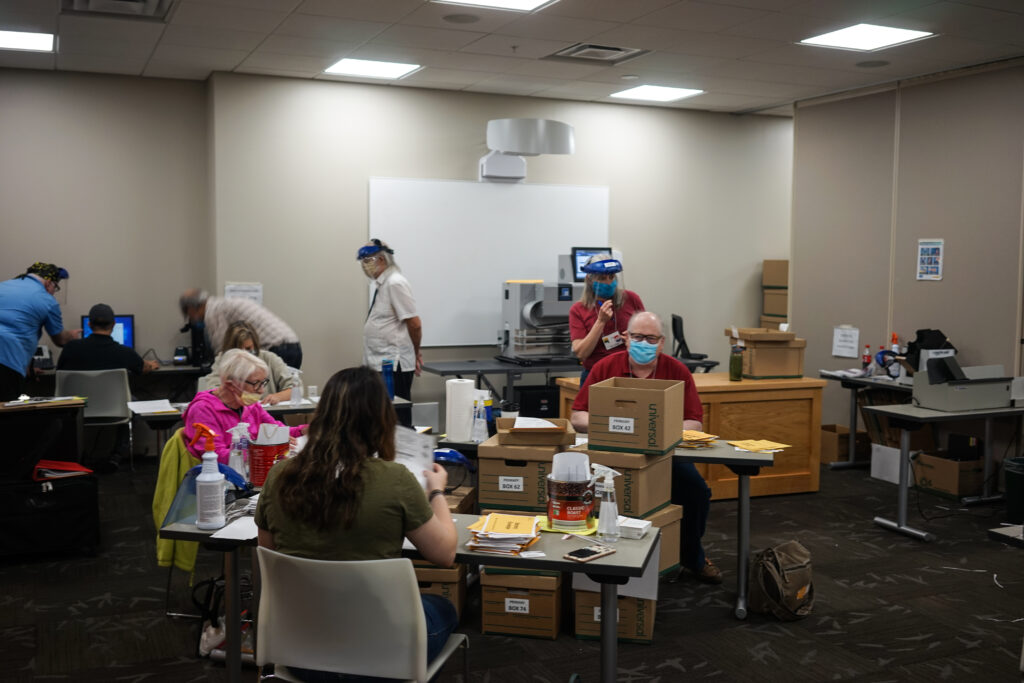
But because 10 times that many ballots had arrived, the state of Iowa had approved special rules allowing the workers to begin counting the day before in-person voting took place.
Despite the heavy load, the workers weren’t complaining.
“We believe voting is a very big privilege in our country,” Bonnie Kueister said, noting “it’s how we speak” to elected officials.
The surge in mail-in ballots was due to Iowa’s efforts to maximize voting while keeping people away from polling places. The secretary of state sent out absentee ballot request forms to every registered voter in the county, and about 25,000 people asked for ballots. It was the same around the nation states have been working to keep up with demands for mail-in voting, with recent polling showing most voters want to cast ballots early.
Weipert said Johnson County rarely experiences problems with inaccurate voting rolls, despite allegations by Trump and others that such rolls often include dead people. Weipert has a staff member wade through the local paper’s obituaries every day to identify voters who should be dropped from state lists.
Mail-in voting historically has been safe, according to MIT’s Stewart, even though poll workers don’t get to monitor voters while they cast their ballots.
“Because it’s inherently more risky on the security side, voting by mail comes with safeguards that we don’t see on the in-person side,” Stewart said. “The real danger to me is that the safeguards likely screen out more of the wrong people than the right people; by that I mean we have, nationwide, about 1.5 to 2% of mail ballots that are rejected.”
During the 2020 primaries about 1% of mail-in ballots have gone uncounted, according to an analysis by NPR. The two biggest drivers of that number are signatures that don’t match and ballots that were delivered after voting deadlines. The former rarely involves fraud and usually occurs because people’s signatures change over time, Stewart said.
Recent changes to the U.S. Postal Service made by postmaster general and Trump ally Louis DeJoy caused delays in mail delivery that are only adding to the stress for election officials like Weipert. (Trump’s stated concern about fraud was debunked by a Washington Post analysis of the 2016 and 2018 elections that found only 372 cases of double voting or voting on behalf of a dead person out of 14.6 million votes.)
For November’s election, Weipert will confront another challenge, this time in court filings from Trump’s campaign and several other Republican organizations. Weipert and the auditor for his neighbor to the north, Linn County, are being sued because they tried to make it easier for voters to request ballots by mail.
While the Iowa secretary of state was responsible for sending out the ballot request form for the June primary, counties will have that responsibility for the general election. To make it easier for voters, some county auditors have been mailing ballot request forms with voters’ dates of birth and voter PINs already filled out. The Trump campaign has challenged this move, arguing that the counties are going against guidance from state officials who advised them to send out blank forms. The two counties named in the suit — Johnson and Linn — are the only ones in Iowa that are overwhelmingly Democratic.
The ruling that required Weipert to resend absentee ballot requests forms without the PINs only added another challenge to making November’s election run smoothly, but despite the court case, Weipert had no regrets. “I think we’re on the right side of the fence,” he said. “We’re making voting easier for folks, not harder.”
Disinformation
Outside of Johnson County, population 151,140, some election officials in more rural parts of Iowa were less concerned than Weipert with long lines, counting delays and a crush of mail-in ballots.
Grundy Center, a town of 2,700 people in Grundy County, is small enough that visiting reporters walking alongside the local election auditor drew some friendly heckling from a passing couple.
“Can I have your autograph?” the man shouted.
Rhonda Deters, the county auditor, laughed and waved them off. They were her aunt and uncle. Locals in Grundy County, she said, are more worried about foreign powers manipulating elections than untrustworthy local election officials.
“Many of them know the people that are running this election,” said Deters, a woman in her early 60s partial to jacketed pantsuits who speaks with the soothingly measured cadence of a kindergarten teacher. “They holler at me on the street … and we see each other at other community events. They invite me to their community business meetings. So we have a relationship.”
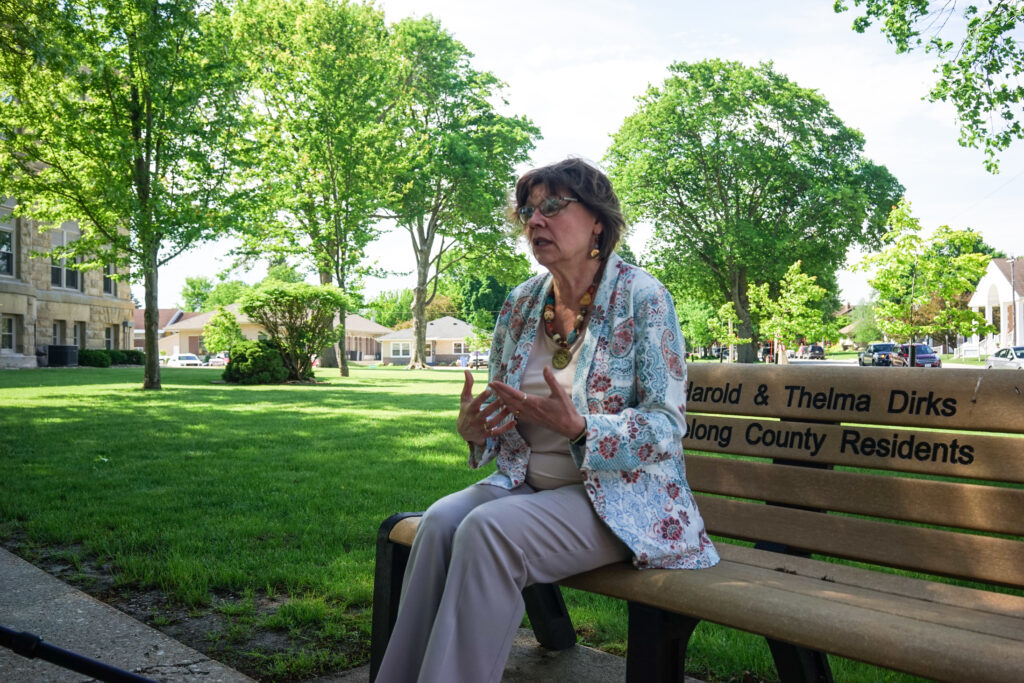
In Iowa, the county auditors who run elections also run for office. Weipert is a Democrat, Deters a Republican.
Hanging over both of them is the fallout from the Democratic presidential caucus in February. The voting software used by the Democratic National Committee failed, turning the state’s already-byzantine caucus system into a national embarrassment when the results took weeks to finalize.
Iowa election officials tend to roll their eyes when it’s mentioned. They’re quick to point out that they don’t play a role in running the caucuses.
But that event — paired with increasingly dire warnings making the rounds on Facebook and other social media platforms that voting won’t be on the level in November — have triggered concerns, thus far unfounded, about whether the election will be secure.
“There’s lots of misinformation and disinformation out there, and we combat that as a small county as well as they combat it at larger counties,” Deters said. “We just do it on a different scale.”
For Deters, that means going to the local radio station to talk about securing the election and an annual visit to a fourth-grade classroom to educate kids about voting.
“When you don’t know how the election process is conducted and all of the safeguards, it’s easy then to believe what others are saying, or to think that there’s something else going on, or that something isn’t right,” Deters said.
Voters in her small county tend to believe her because she’s not a faceless government official. On a national scale, however, voters may be harder to reassure.
Intelligence officials warned in July that foreign adversaries were trying to influence U.S. voters, compromise voting infrastructure and undermine confidence in the upcoming election. National Counterintelligence and Security Center Executive Director William Evanina said authorities were most concerned about threats from China, Iran and Russia, which included networks of social media trolls and coordinated internet campaigns that spread online disinformation designed to erode public trust in elections. In early September a whistleblower who had served in a senior post at the Department of Homeland Security told Congress that he had been instructed to modify intelligence assessments to downplay the threat of Russian election interference and artificially inflate the significance of Iranian and Chinese efforts, although congressional staff are just beginning their investigation into those claims.
The White House has publicly played down such interference. Trump claimed in August that mail-in voting was as big a threat to election integrity as malicious foreign agents.
Most of the angst this year derives from what happened four years ago. While there’s no evidence Russian hackers changed vote tallies, that country’s intelligence services made liberal use of social media to sow political divisions and feed targeted groups of voters incorrect information about supposed irregularities. The full impact of the Russian campaign is impossible to discern, despite Republican claims that it did not change the outcome of the election.
Lawmakers and regulators have pushed Facebook, Google and Twitter to work harder to thwart attempted digital election sabotage, but experts say social networks have been slow to respond to the growing threat.
Deters worries that despite her best efforts, misinformation — either deception orchestrated by nation-backed agents or sparked by an ill-informed resident — would move quickly through small-town rumor mills in places like Grundy County. “You are well aware of how quickly those things can explode,” she said.
COVID and protests
Cars, bicycles and even a motorized scooter queued up next to the office of the Johnson County auditor, Weipert, the day before the June primary, their drivers and passengers waiting to partake in an Iowa novelty: Drive-through voting.
Mindful that poll workers would have to manage as many as 200 voters a day while trying to maintain social distancing, Weipert routed the traffic past a garage attached to his building on Dubuque Street. Voters waited in two parallel lines while poll workers walked and jogged back and forth to grab ballots and feed them through slightly ajar windows in the auditor’s office.
The makeshift drive-through was one of several accommodations Weipert made as a result of the coronavirus. With fewer poll workers and some public buildings closed limiting available sites, he had to cut back on the number of polling locations for the primary, from 57 to 46; each was stocked with masks and hand sanitizer.
On primary day, Weipert drove to several polling stations to see how things were going. An Eagle Scout who grew up in the northern reaches of the state, near the Wisconsin border, Weipert comes from a family of local government workers. His father is still mayor of his hometown, Marquette, and his mother was a county employee in that corner of the state for years.

As he drove south to the Lone Tree Elementary School polling station, a rural outpost framed by cornfields and grain silos, Weipert described his efforts to recruit younger poll workers for both the primary and November’s election because of concerns older workers wouldn’t show up. He needn’t have worried for the primary. By late morning, only 15 people had voted at Lone Tree. It was manned by three workers. Two wore masks; the third, Betty Simmons, felt no need to do so.
“My kids would have a fit if they knew I was without a mask, but I know everybody that comes in here,” she said.
Other polling sites were similarly quiet. By mid-afternoon, however, Weipert’s office began receiving calls about a disturbance in Coralville, a five-minute drive from Iowa City.
A week earlier, George Floyd was killed in Minneapolis after a white police officer pinned Floyd’s neck with his knee, touching off a wave of protests around the country.
Young protestors marched to a major intersection in Coralville, stopping traffic. They blasted music, waved homemade signs and demanded reforms through megaphones. They then turned their attention to two local police officers in dark uniforms who were redirecting traffic.
The crowd of perhaps 30 backed the officers against their SUV in the middle of the intersection. Nearby, a group of demonstrators drove up in a car, parked, opened the doors and trunk, and blasted N.W.A.’s “Fuck tha Police” from the stereo.
We can’t do this work without your support.
Crowd members shouted at the police, demanding that the two officers repeat the phrase “Black lives matter” and say Floyd’s name. One did, earning a “thank you” from a woman in the crowd.
The protesters had begun their march at a government complex that housed city hall, police headquarters and a voting precinct. Weipert’s team rushed to the site with a truck to pack up and relocate the precinct to a nearby library. There they had to reset and reboot the electronic voting machines and verify that everything was working and the vote count was correct.
“All the ballots have to be accounted for the whole time,” Weipert explained. “There needs to be two people watching them at every moment.”
The Coralville protest was one example of an unpredictable factor Weipert and other local officials might have to deal with in November. Another was an unusual straight-line wind event, known as a derecho, that flattened 14 million acres of Iowa crops in August.
“If there’s an auditor in the state that tells you they go to sleep the night before the election with nothing on their mind, they are completely lying,” Weipert said.
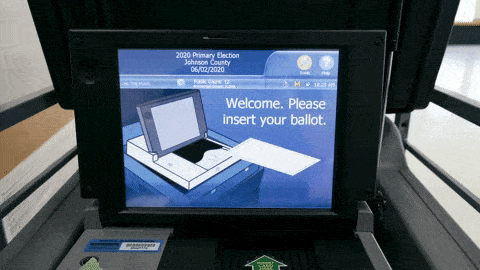
Cyber threats
Alex Stanton, a full-time election technician for Johnson County, anxiously leaned forward in his chair and constantly refreshed his laptop screen after the polls closed on primary night. He was waiting for the county’s 46 polling locations to connect their ballot scanners to the internet to stream the results into the auditor’s office in Iowa City.
For professionals like Stanton, who spends most of his time maintaining voting machines, this was the moment of greatest tension. There was no evidence the results had been hacked, but it was the only time voting systems were connected to the internet. He spent the next 45 minutes refreshing his screen, handing off updates on the collected results to another worker to release to the public.
The idea of a foreign power hacking voting results seemed far-fetched before 2016, when Russian agents attempted to break into the voter rolls of all 50 states, and were successful in penetrating seven. There’s no evidence those hackers used that access to change the rolls or manipulate voting directly, but it spooked elected officials.
In 2018, Congress approved nearly $400 million to help states protect their voter rolls, which are distributed to local officials like Weipert. For Johnson County, laptops are loaded with the rolls the night before an election and left disconnected from the internet the day of the vote. Election workers are also given printed books of voters registered for their polling places in case the computers go down.
Meddling with voter rolls could create confusion by causing delays at the polls and potentially forcing voters to cast provisional ballots if there were conflicts between their documentation and state records. But it wouldn’t change votes.
The machines that Johnson County uses, like most in the U.S. today, rely upon paper ballots that are scanned. Those ballots don’t disappear; Weipert is required to keep them in a warehouse for years before they can be destroyed. The machines used for voting are kept in an annex behind six doors requiring keycard access.
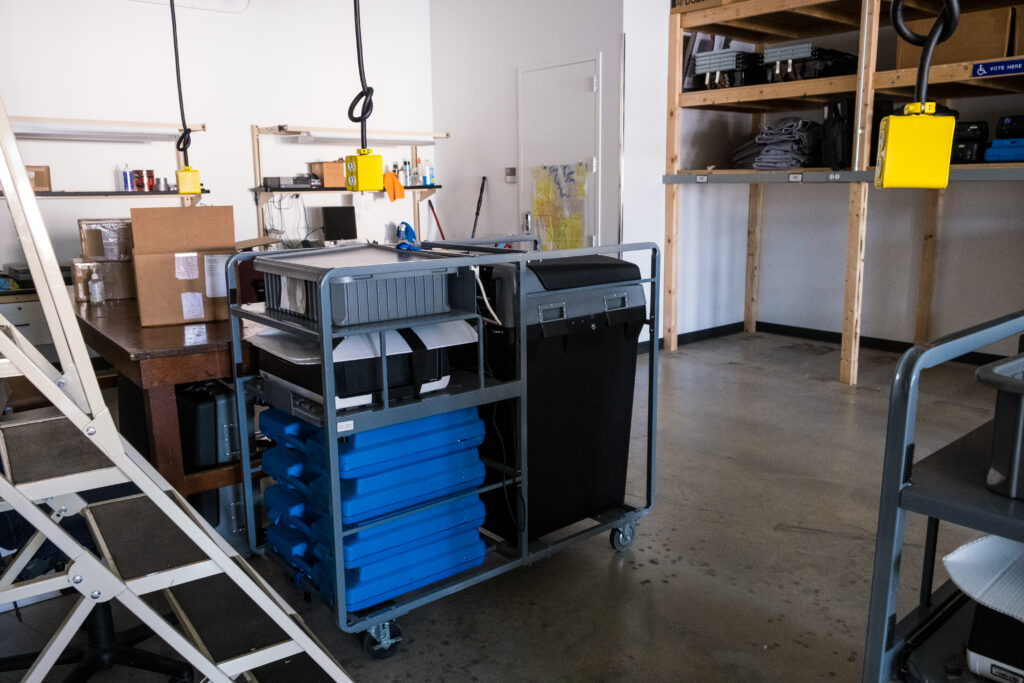
That doesn’t mean they’re invulnerable.
When Sweta Ghimire was an undergraduate computer science student at Louisiana State University, she attended the 2018 DEF CON hacker conference, where about two dozen models of voting machines used in several states were on display. Having never attempted to manipulate a machine before, she managed to break into the operating systems on the first two models she and other students began testing in under 15 minutes.
“In the end, we were able to change the voting records,” she said in an interview with Public Integrity.
Breaking in was fairly easy, though the students had physical access to the machines. It might be harder for a foreign power without that advantage. Still, Ghimire was troubled by the ease with which she was able to compromise the machines — especially those that don’t keep paper trails.
“The fact that it’s still possible and it’s not too difficult does make me wish for paper ballots,” she said.
In Johnson County, before election results are sent over the internet from the polling locations, each scanning machine produces a printed receipt. These are the results that actually matter, the ones that count when the officials certify the election. The digital tally sent by the machines is an unofficial total that is meant to provide quicker information for the public.
Weipert wonders what would happen if the electronic results differed from what was on the receipts.
“It always concerns me that we might have a close race, and let’s say somehow somebody tampered with a machine,” he said. “Now you have this candidate thinking when we go to bed tonight, they won, and yet we’re here at midnight looking over the tape, going ‘Wait a minute, these don’t match up.’ So then the next morning you have to call and tell that guy or lady, no, you’re not winning right now.”
With the 2020 presidential election already clouded by unsupported accusations of rigging, anything that creates uncertainty about the results could engender a broader crisis where portions of the public don’t accept the results, a nightmare scenario for local election officials.
Like his counterparts in 98 other Iowa counties, Weipert has a slew of duties beyond running elections. “Most [election officials] are fulfilling a number of functions in their county government,” said Stewart, the MIT professor. “They’re the county or city clerk, which means they’re handling dog licenses, voting permits, and a wide variety of other functions for the county. Election offices are not funded as a top priority.”
Weipert is bracing for November, anticipating that many older poll workers might beg off because of the pandemic and hoping he can find 20-somethings to replace 60-somethings. He remains adamant about his mission, even as he’s being sued by the president.
“It’s just B.S.,” Weipert said. “There’s no rhyme or reason, but it’s all about minimizing certain sectors of the voting community so they can’t vote. I think it’s very, very clear that all I want is [for] people to vote.”
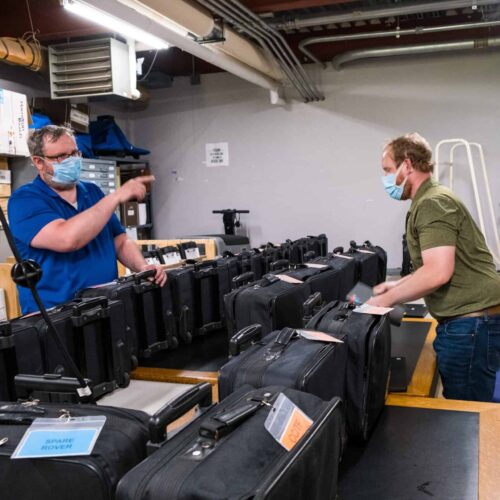



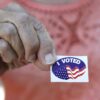
Join the conversation
Show Comments